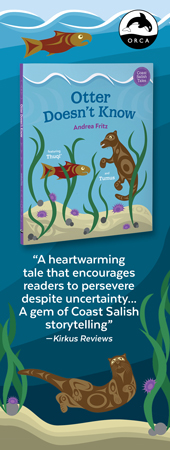MALADJUSTED
July 04th, 2013
MALADJUSTED Created and performed by patients and caregivers
Theatre for Living, Firehall Arts Centre, March 8-24
David Diamond is a local hero.
As co-founder and then Artistic and Managing Director of Headlines Theatre since 1981, David Diamond has directed more than 400 community-specific theatre projects on issues such as racism, gender roles, violence, addiction, self-esteem, First Nations’ Residential Schools, globalization and language reclamation.
Abroad, he has directed workshops in Namibia, New Zealand, Germany, Austria, Italy, Singapore, Australia and Finland. Diamond has also been involved in the writing and/or directing of all of Headlines’ main stage plays, including NO` XYA` (Our Footprints), Out of the Silence, Mamu, Squeegee, Corporate U, Here and Now, Meth and the Legislative Theatre project, Practicing Democracy.
Now Diamond is recasting Headlines, renaming his platform for educational initiatives as Theatre for Living. In his words, the emphasis has shifted from “ringing essential alarm bells to the creation of what we hope are essential dialogues.”
Along the way Diamond has pioneered his own form of interactive theatre. In a nutshell, audience members are encouraged to replace actors on stage, generating critical dialogue about social issues by adding their suggestions as to what the actors should say or do to generate social progress.
In 2007, Diamond digested his 36 years of theatrical activism into a book, Theatre for Living: The Art and Science of Community-Based Dialogue. It became the first self-published book to receive the Distinguished Book Award from the American Alliance for Theatre and Education (AATE).
All well and good.
The latest Diamond project is Maladjusted, a 30-minute play that received four weeks of rehearsal to expose weaknesses in the way mental health patients are often treated, particularly in areas such as the Downtown East Side. After the first run-through of approximately a dozen scenes, Diamond puts himself front and centre, re-running parts of Maladjusted for another hour-and-a-half, cajoling audience members to replace his actors in various scenes.
We are told in his preamble, and in the program, that 191 people applied to participate in the creation and performance of this play. All had experiences that directly relate to the content of the play. Vancouver-based actor Sam Bob of the SnawNaw-us First Nation, for example, overcame PTSD from residential school trauma and spent several years overcoming alcohol addiction. His portrayal of an addiction counselor is quite simply terrific, completely convincing.
Four days prior to the opening, one of the principal actors from the cast of six had a medical emergency and could not continue. Remarkably, his back-up, Colin Ross, after four days of rehearsal, steals the show as an unstable, homeless youth, Jack Richards. Again, thoroughly convincing. He’s that kid you might see shivering outside the liquor store with a blanket and a dog. Basically decent, but running scared.
When Jack sincerely wants shelter; well-meaning social worker Abby (convincingly portrayed by Erin Arnold, who works as a counselor for victims of crime and trauma for her day job) helps him find it. Trouble is, the only opening is in an addiction centre where Jack’s meds must be confiscated.
Budget cuts are one thing; but the inability of Jack’s physician Dr. Devreaux (played by former psychiatrist Pierre Leichner) to function outside of the box is another. When Jack crosses the line and wants to fraternize with the troubled and possibly bipolar Danielle, who happens to be the teenage niece of his addiction counselor Frank Williams, the system mercilessly turns on Jack.
When good-hearted Jack is literally pinned to the ground by his burly counselor and squeamish doctor, he screams, “Don’t inject me, please!” That’s when Diamond takes over. During his rewind of pivotal scenes, he thoroughly controls the stage with his lectures, explanations and directives. “Mechanization of the health care system” for the sake of efficiency, we are told, has been “internalized” by most people in our society. So we must work together for change.
Diamond says he wants room for disagreement in his dialogue – “We don’t need to agree in here.” – but it soon becomes obvious that Diamond’s manners are one-note brusque; his impatience with anyone who does not suit his agenda is severe. His policy is clear: he will not allow anyone to contradict or counteract any of his directives. The irony becomes obvious: David Diamond so passionately wants to expose the health system for being insensitive that he is willing to behave like an excited, well-meaning tyrant to do so.
As an exercise in social critiquing the health care system, based on mistakes made by amateur actors in a 30-minute skit, Maladjusted is not an evening of entertainment; it has been designed to ultimately produce dictums for a formal report that Theatre for the Living will assemble on how health care policies can and should be changed. “I am asking for policy,” Diamond commands, pleads, cajoles.
Every time someone from the audience ventures to make a statement or offers an opinion, Diamond chronically re-states their idea in his own words, as if nobody else could possibly be more articulate. It’s like Phil Donahue on steroids as Diamond controls every nuance of dialogue and action on-stage—never leaving it, even while scenes are being re-enacted with volunteers. He must elaborate. He must preach. This is his show.
Regardless, we need Theatre for Living as much as we need any other theatre company in town. Diamond’s heroism outweighs objections to his style. People can’t change public opinion be behaving like wallflowers. Look at David Suzuki. Or Einstein. Or Joan of Arc. People with the guts to lead can’t be distracted by the need to be liked.
Nothing but good will come from Maladjusted. It tries to tell it like it is. As does this review.
— Paul Durras


Leave a Reply